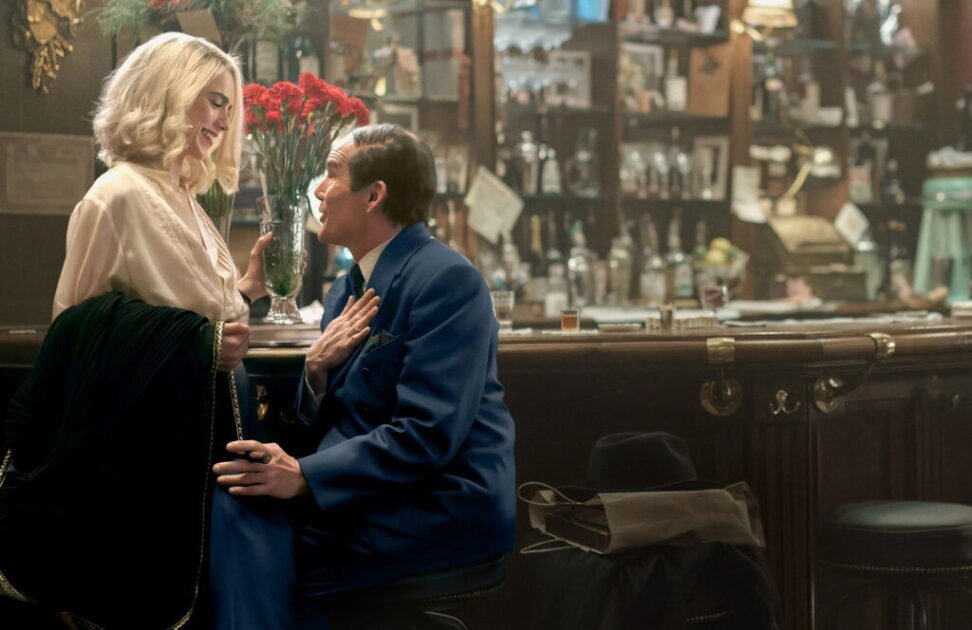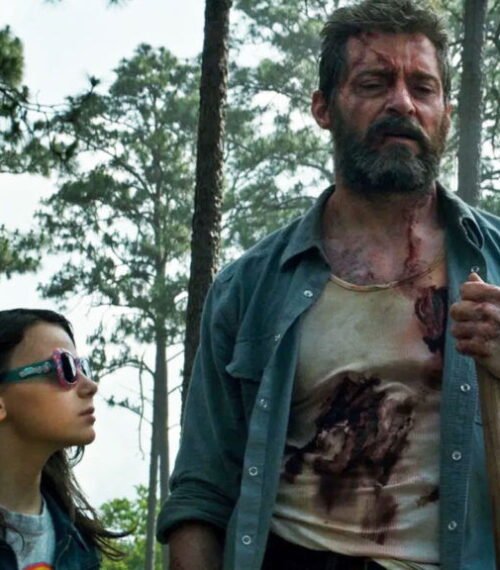This year, writer-director Richard Linklater is releasing not one but two films that are homages to tortured artists of the past. Working best as a showcase for the incredibly talented Ethan Hawke, the first of that duology, Blue Moon, is ultimately underwhelming due to an off-putting first act that takes too long to reveal its complexity.
What is Blue Moon about?
Blue Moon follows songwriter Lorenz Hart as he struggles with accepting the success of his former collaborator Richard Rodgers on the opening night of Oklahoma! Over the course of this eventful night, he reflects on a number of issues, including his sexuality, his addiction, and his professional woes.
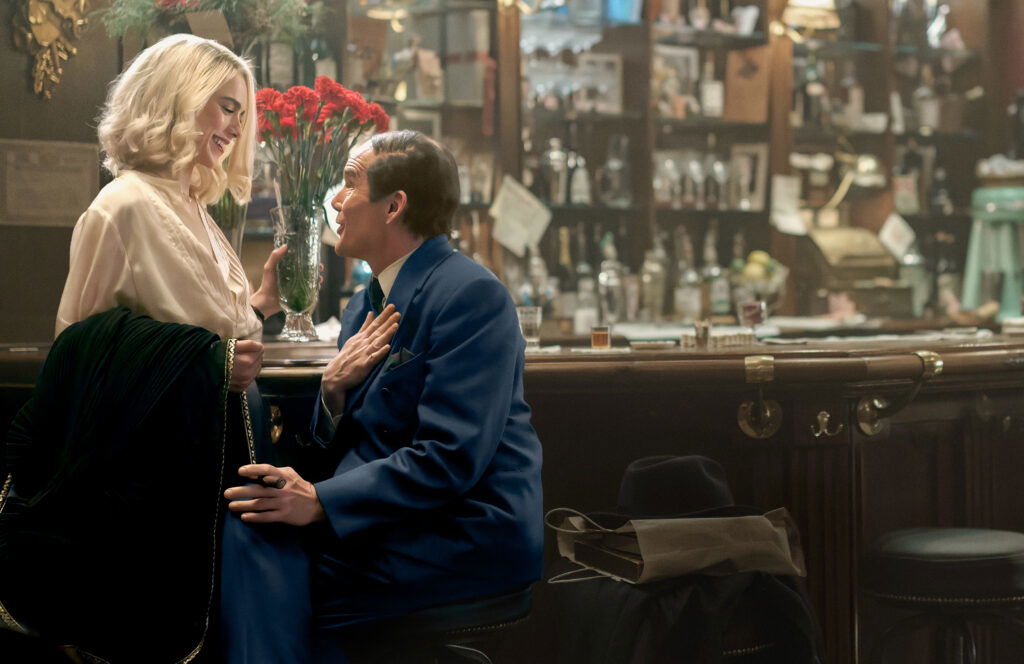
Blue Moon Review
For the first twenty minutes of Blue Moon, we are just watching Ethan Hawke as Lorenz Hart complain about Rodgers and Hammerstein’s overrated Broadway hit. Of course, there’s more to it than that; Kaplow’s script is certainly interested in the psychological and emotional reasons Hart feels this way about his former collaborator’s success. The situation allows Kaplow to explore themes such as jealousy and betrayal, but the subtext is so overt that it is nearly just text. However, the first act is off-puttingly full of complaints, and the movie struggles to ever gain its momentum.
Blue Moon certainly feels more like early Linklater than it does his recent output in that it boasts a very particular theatricality. Its setting is confined almost entirely to a single location: the bar where the afterparty for the opening night of Oklahoma!
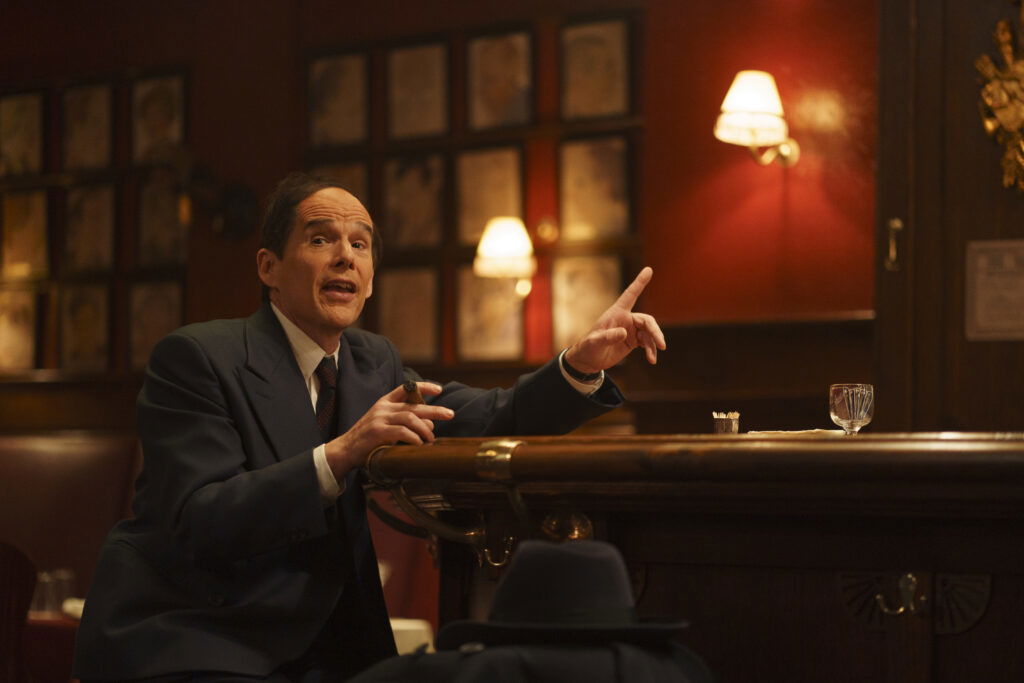
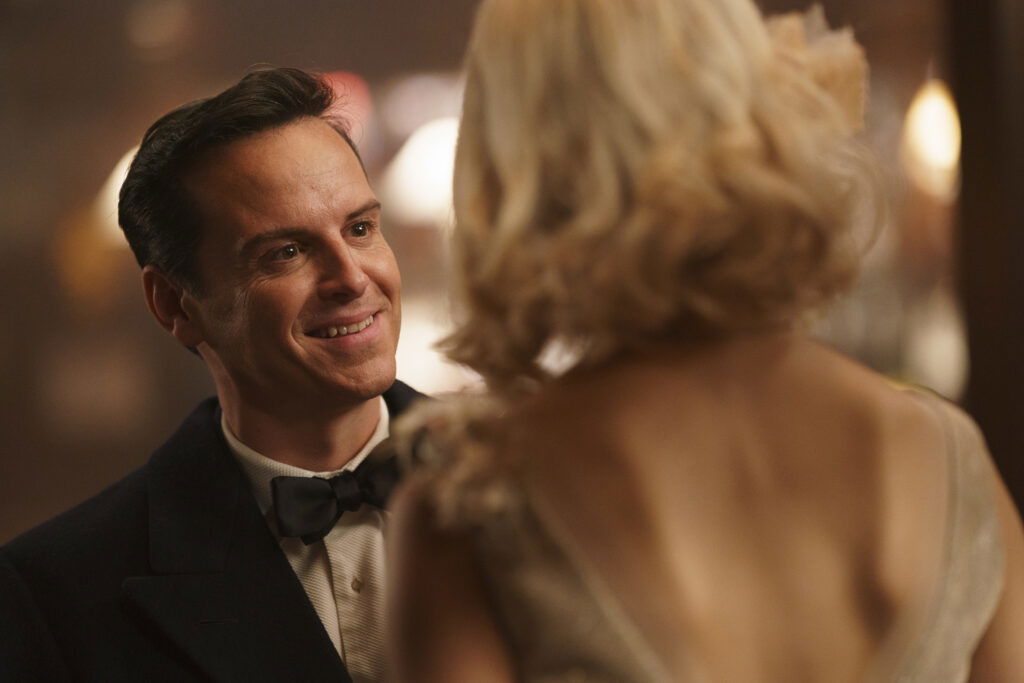
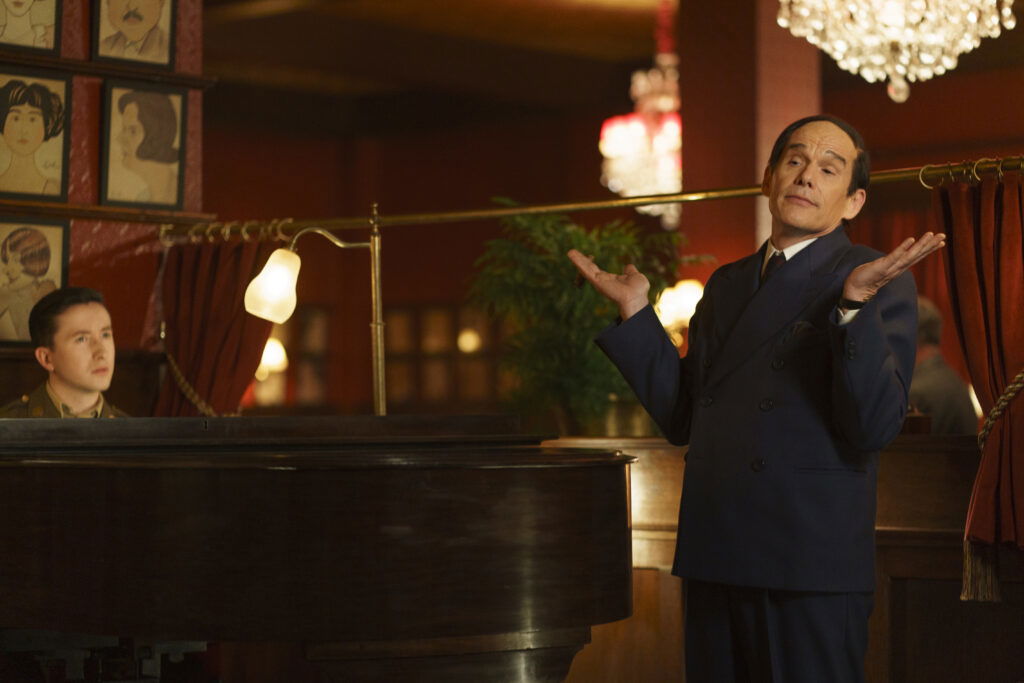
However, it is easy to watch characters just talking when they’re brought to life by great actors, and that is certainly the case with Ethan Hawke’s performance in Blue Moon. It’s the type of performance that certainly feels like awards bait: aggressive (albeit impressive) makeup, a focus on accent work, punchy dialogue that lets the performer chew on the scenery. But the gifted actor that he is, Hawke identifies and lingers on the deeper aspects of humility that define the character, making the performance feel richer and more impressive than most biopic turns.
Kaplow deserves a lot of credit for taking the “moment in time” approach to telling Hart’s story rather than the typical Wikipedia page biopic. We do learn a shockingly robust amount about Hart through the hyper-specific case study of this one night. However, the character as written is not super likable or empathetic, merely pitiable — it’s Hawke’s performance that does much of the heavy lifting in getting the audience won over to the protagonist’s side.
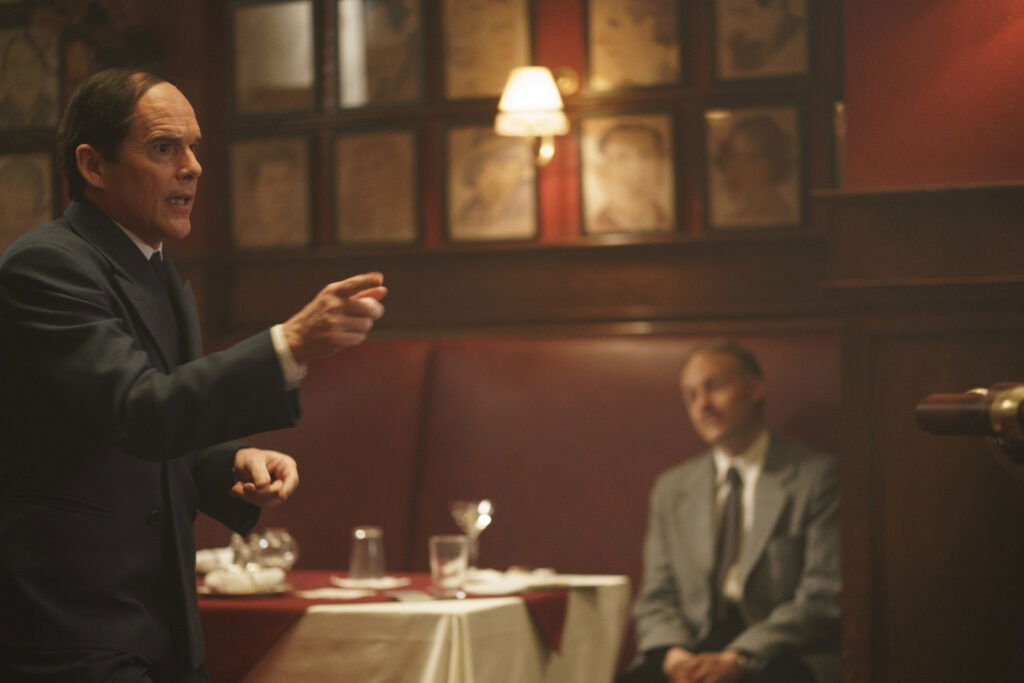
In terms of the supporting cast, every character exists to orbit Hawke’s Hart. In some cases, such as Qualley’s Elizabeth Weiland, the characters feel underdeveloped to the point of being borderline reductive. Others, like Bobby Cannavale’s bartender, feel like glorified featured extras that could have been played by anyone. Only Andrew Scott, as Richard Rodgers, gets a particularly substantive role, but it is hard to tell how much of this is the script and how much of it is Scott’s natural talent as an actor.
Of course, from a technical standpoint, Linklater’s film is more accomplished than most dialogue-heavy chamber pieces. The production design and costuming do a great job of evoking both mood and setting, while the use of music as a recurring motif in the movie (including the eponymous song) is quite effective, if a bit direct. This is in addition to the aforementioned strong hair and makeup work.
Is Blue Moon worth watching?
Still, if Blue Moon isn’t able to win you over within its first twenty minutes, chances are you will become disillusioned past the point of no return. Hawke’s performance is strong, offering marginally more nuance than one would expect from a biopic like this, but it’s not enough to redeem the film from the fact that most of the first half is spent watching someone complain, even if those reasons for complaining are compelling.
Blue Moon opens in theaters on October 17.

